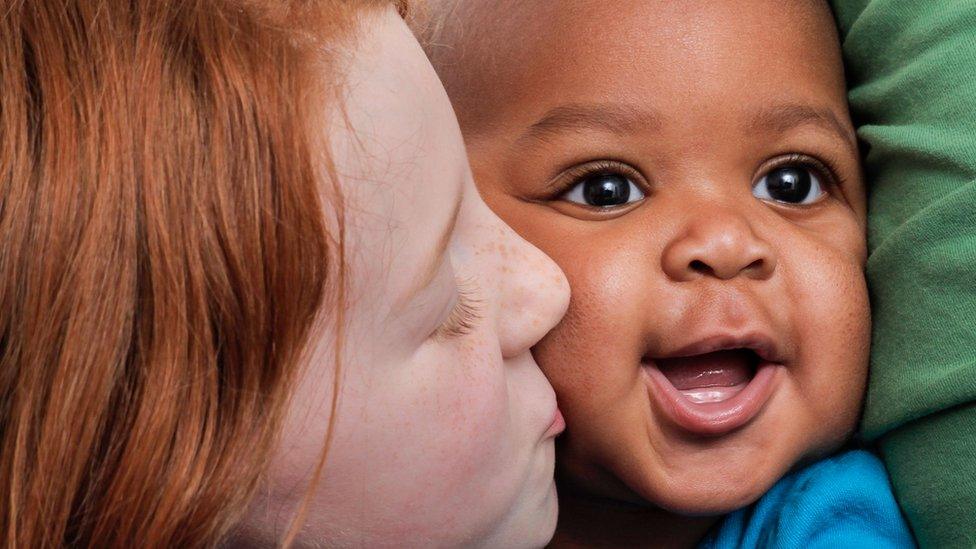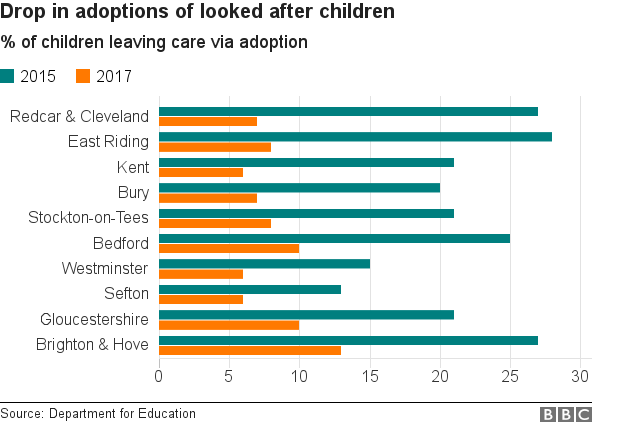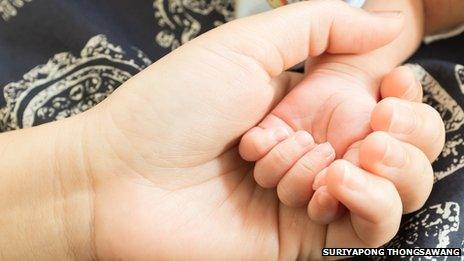Adoptions fall despite more children taken into care
- Published

Councils had been told to put children up for adoption only when there was no alternative
The number of looked after children adopted in England has fallen for the second year in a row, despite a rise in the number in care.
There were 72,670 children in care as of March 2017, 2,220 more than the year before.
In the same year, 4,350 children were adopted from care, down from 5,460 two years earlier.
Charity Adoption UK said the number of children needing a home would outnumber those offering to provide one.
It blamed the drop on two court rulings in 2013, in which councils were told that adoption orders should be made only when there was no other alternative, such as placing a child with birth relatives.
The charity said it took time for the effects of the ruling to be felt and chief executive Sue Armstrong Brown added: "I am certain that this is a hangover from the confusion over the rulings.
"This autumn the number of children needing an adoptive home may outnumber those coming forward to provide that home. Clearly, we need to do more to recruit potential adopters, whilst retaining the rigorous assessment that's part of that process."
The Department for Education (DfE) also put the first decline in adoptions after March 2015 down to the court rulings.
Looked after children include those placed with foster families as well as those in children's homes, secure units or living with their parents under supervision by social services.
Redcar and Cleveland saw the biggest fall in children leaving care via adoption. In 2015, 27% of children who ceased to be looked after were adopted. This fell to 7% in 2017.

The figures also revealed a further rise in the number of unaccompanied asylum seeking children.
There were 4,560 asylum seeking children in the care of councils in March 2017, compared with 4,300 the year before and 1,950 in 2009.
Carol Homden, of children's charity Coram, said: "The continued rise in the number of children who are looked after demonstrates the need for prospective foster carers and adopters to come forward."
A Department for Education spokeswoman said there was "no one-size-fits-all approach" to supporting vulnerable children.
"Through our reforms, we are strengthening guidance for councils on what it means to act as a corporate parent, so that every single child, no matter where they live, receives the same high quality care," she said.
- Published26 September 2017

- Published13 May 2015
